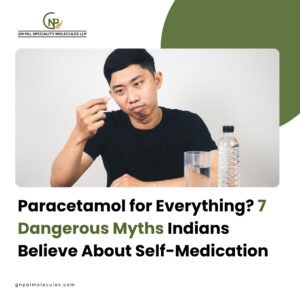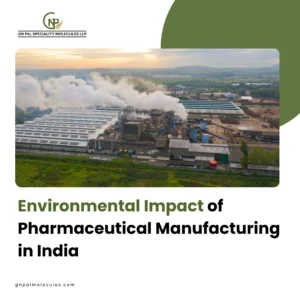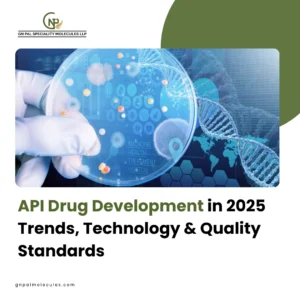
API Contract Manufacturing is a vital backbone of the pharmaceutical industry, enabling companies to streamline production, reduce costs, and focus on core competencies like research and development. By partnering with specialized manufacturers for the production of Active Pharmaceutical Ingredients (APIs), pharma companies gain access to advanced technologies, regulatory expertise, and scalable infrastructure. This collaborative model not only enhances efficiency but also ensures consistent quality, compliance with global standards, and faster time-to-market for essential drugs.
Introduction.
With the rapid changes in medicine, one trend that is taking over is the boom in generic drugs, which are manufactured using APIs. Generic drugs are becoming more popular as people seek affordable options to maintain their health. CMOs are responsible for producing the active pharmaceutical ingredients (APIs) that make these drugs effective, working behind the scenes. The company is reducing expenses, hastening the process, and revolutionizing the manufacturing process.
This paper will explore the reasons behind the widespread adoption of generic drugs, how API contract manufacturing is contributing to their success, and what implications this has for global healthcare.
What Is API Contract Manufacturing?
Using outside experts, drug companies hire them to manufacture the active ingredients for their medicines using API contract manufacturing. Known as CMOs or CDMOs, these professionals possess the ability to handle the challenging chemistry required for developing APIs while adhering to strict safety protocols.
All About Generic Drugs
What Makes a Generic Drug?
Generic drugs are like the budget-friendly cousins of brand-name medicines. They have the same active ingredients, work the same way, and are just as safe and effective. The big difference? They’re sold under their chemical name, not a fancy brand, which makes them way cheaper.
Here’s the scoop on generics:
- Same Active Stuff: The ingredient that makes the drug work is identical to the brand-name version.
- Safe and Effective: Regulators like the FDA in the U.S. make sure generics meet the same high standards as brand-name drugs.
- Lower Cost: Generic makers skip the costly research and marketing, passing savings to patients.
- Looks Different: They might come in a different color or shape, but the medicine inside is the same.
Why Are Generic Drugs Booming?
The global market for generics was worth over $350 billion in 2023 and could hit $500 billion by 2030. Why the surge? Aging populations, more chronic illnesses like diabetes, expiring patents on brand-name drugs, and pressure to keep healthcare affordable are all driving demand.
- North America: Lots of generics and strong manufacturing.
- Europe: Rules are aligning, and biosimilars (like generics for complex drugs) are growing.
- Asia-Pacific: India and China are leading with low costs and skilled workers.
How API Contract Manufacturing Helps Generic Drugs Thrive
Cutting Costs
By outsourcing API production, drug companies avoid the huge expense of building and running factories. Many CMOs operate in places where costs are lower, like India or China, which means even bigger savings.
Getting to Market Fast
When a brand-name drug’s patent runs out, generics need to hit the shelves quickly to compete. CMOs have the know-how and equipment to scale up production fast, so patients don’t have to wait.
Focusing on What Matters
Outsourcing lets drug companies zero in on what they do best—like inventing new treatments or spreading the word about their products. They leave the manufacturing logistics to the pros.
How Outsourcing Works
Full-Service Outsourcing
Some companies hand over the whole API-making process to a CMO, from sourcing raw materials to final production. This is perfect for smaller firms that don’t have their factories, as it saves time and money.
Hybrid Approach
Others mix things up, making some APIs in-house and outsourcing the rest. This gives them flexibility and a backup plan if something goes wrong.
Managing Risks
Outsourcing isn’t perfect. There’s a chance of quality issues, supply chain hiccups, or even intellectual property leaks. But picking reliable CMOs and setting clear contracts can keep these risks in check.
Navigating Rules and Regulations
Global Standards
API makers have to follow tough rules from groups like the FDA (U.S.) or EMA (Europe). These rules, called Good Manufacturing Practices (GMP), ensure every batch of medicine is safe and high-quality.
Keeping Quality First
CMOs use strict testing at every step to make sure APIs meet standards. New tools, like Process Analytical Technology (PAT), help them get it right every time.
Protecting Ideas
Outsourcing can get tricky when it comes to protecting a company’s secrets. Clear contracts are key to keeping intellectual property safe and ensuring no one misuses sensitive info.
Tech and Innovation in API Manufacturing
Automation
Tech is changing the game. Robots and automated systems are making API production faster, more accurate, and cheaper by cutting down on human error.
Continuous Manufacturing
Instead of making APIs in batches, some CMOs use a nonstop process called continuous manufacturing. It’s faster, more consistent, and perfect for high-demand generics.
Going Green
With stricter environmental rules, many API makers are getting eco-friendly. They’re recycling solvents, cutting waste, and using greener materials to make production more sustainable.
How COVID-19 Shook Things Up
The pandemic showed how fragile global supply chains can be. Lockdowns and shipping issues caused shortages of critical APIs. In response, countries like India and the U.S. started pushing for more local production to avoid relying too heavily on imports. Companies also got smarter, using digital tools to track supplies and working with multiple suppliers to stay flexible.
India and China: The API Powerhouses
They stand as global leaders in API manufacturing. India excels with cost-effective production and rigorous quality standards, while China leads in raw material supply and high-volume operations.
Big drug companies partner with them to save money and tap into their expertise. Government support, like India’s bulk drug parks or China’s “Made in China 2025” plan, keeps their API industries growing strong.
Opportunities in Emerging Markets
Countries in Africa, Latin America, and Southeast Asia are building better healthcare systems, which means more demand for affordable generics. With diseases like diabetes and cancer on the rise, generic drugs backed by API contract manufacturing are a game-changer. Plus, setting up local API production cuts reliance on imports, makes drugs more available, and creates jobs.
Conclusion
API contract manufacturing is becoming an indispensable part of the pharmaceutical industry, driven by the need for cost reduction, faster drug development, and growing demand for generic drugs. With favorable market conditions and technological advancements, the API contract manufacturing market is poised for sustained growth. Partnering with established manufacturers like Akums Drugs and Pharmaceuticals Ltd. can help pharmaceutical companies stay competitive and meet the evolving healthcare needs worldwide.





